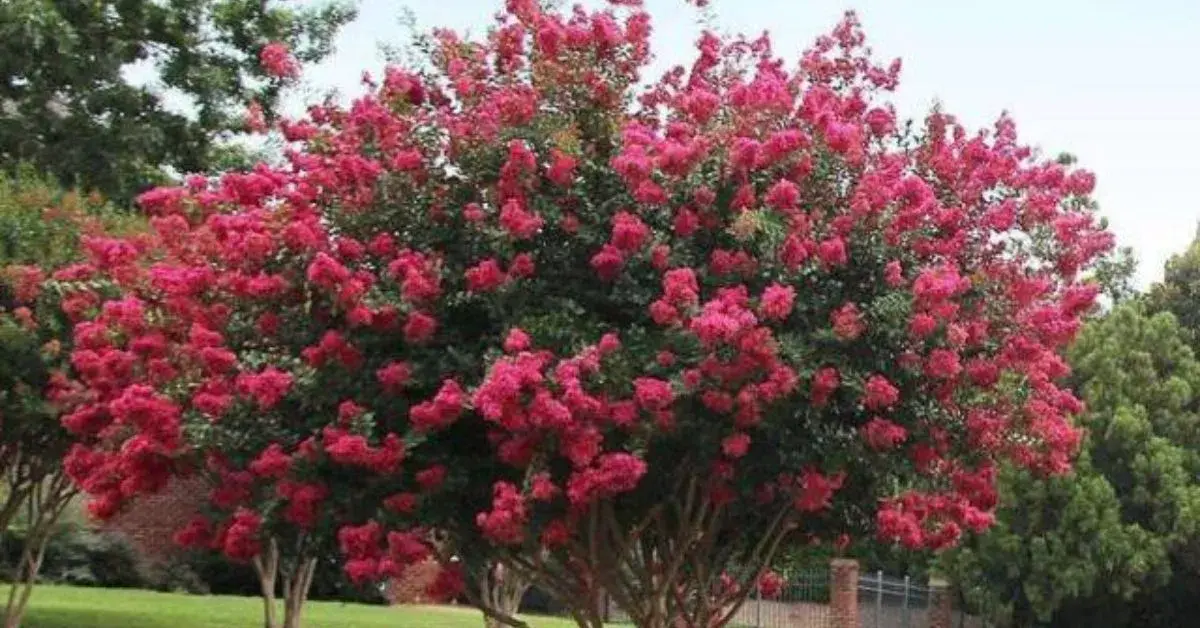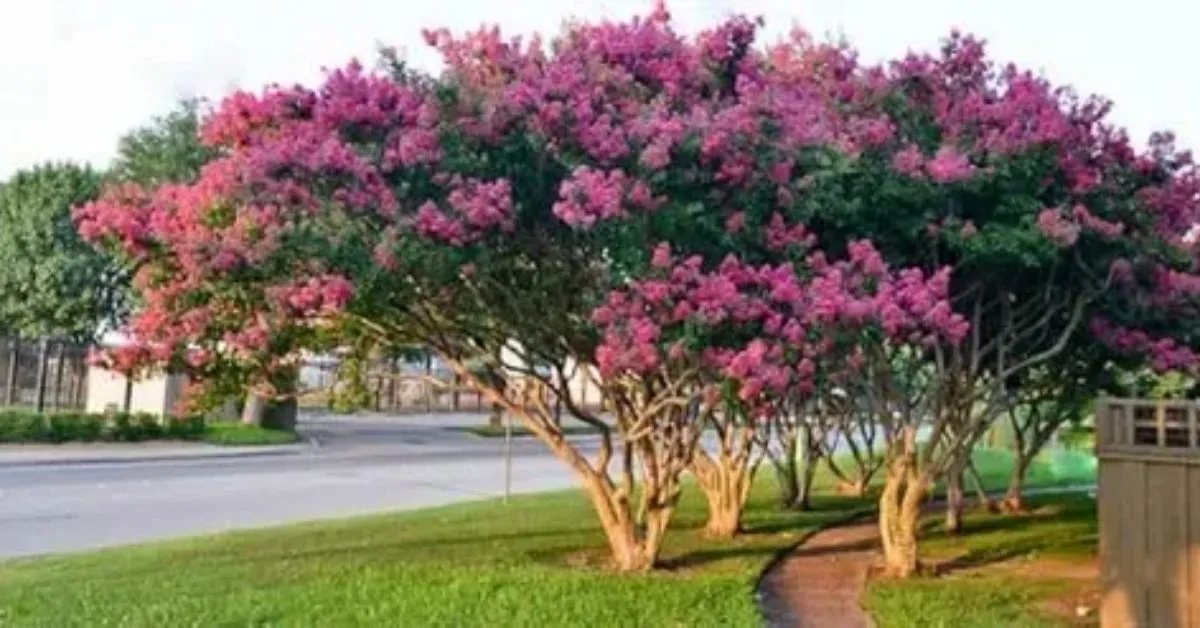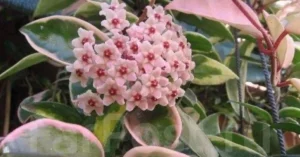Crepe myrtles are the sweetheart of Southern scenes, and there’s great reason why. These shocking trees do not fair offer ravishing sprouts they develop at a pace that’ll make any nursery worker grin. You won’t spend decades holding up for shade or protection.
Most crepe myrtles shoot up between 1-3 feet annually, though some varieties really take off. Fast-growing types can add 3-5 feet per year under ideal conditions. That means your tiny sapling could become a respectable tree within just a few seasons.
Several factors influence their growth speed. Soil quality, daylight, and water accessibility all play vital parts. The assortments you select things too dwarf sorts remain compact whereas standard assortments reach amazing statures. With appropriate care, you’ll observe your crepe myrtle change from a unassuming bush into a marvelous central point quicker than you’d anticipate.
General Growth Rate Overview
Crepe myrtles typically grow 1-3 feet each year under normal conditions. This puts them in the moderate to fast-growing category for trees. Young trees often grow faster than mature ones.
Different varieties show different growth patterns. Dwarf types might only add 6-12 inches annually. Standard varieties can shoot up 2-4 feet per year when they’re happy.Factors That Affect Growth Speed
Soil quality makes a huge difference in growth rates. Well-draining soil with good organic content helps trees establish quickly. Poor, compacted soil slows everything down.
Climate and care practices also matter tremendously. Regular watering during dry spells keeps growth steady. Proper pruning and fertilizing can boost annual growth significantly.
Variety-Specific Growth Rates
- Dwarf varieties (like ‘Pocomoke’ and ‘Cherry Dazzle’) grow 6-12 inches annually
- Semi-dwarf types reach 1-2 feet of growth per year on average
- Standard varieties (‘Natchez’, ‘Muskogee’) can add 2-4 feet yearly when established
- Fast-growing cultivars like ‘Basham’s Party Pink’ may shoot up 3-5 feet per season
- Tree-form varieties generally grow faster than shrub forms
- Newer hybrid varieties often show improved growth rates over older cultivars
Ideal Growing Conditions for Faster Growth
Full sun exposure gives crepe myrtles the energy they need for rapid growth. At least 6 hours of direct sunlight daily works best. Partial shade slows their progress noticeably.
Read More : Croton Mammy Plant Care Guide for Beginners
Consistent moisture without water logging creates perfect growing conditions. Mulching around the base helps retain soil moisture. Good air circulation prevents disease issues that can stunt growth.
Impact of Climate Zones on Growth

Crepe myrtles thrive in USDA zones 6-10 with varying growth rates. Southern zones see faster, longer growing seasons. Northern areas have shorter growing periods but still support healthy development.
Extreme temperatures can slow growth dramatically. Late spring frosts damage new growth and set trees back. Harsh winters in borderline zones may cause dieback that reduces overall growth rates.
Soil Preparation and Its Role in Growth
Here’s your information organized in a clear table format:
| Soil Factor | Optimal Condition | Impact on Growth | Improvement Method |
| Drainage | Well-draining, not waterlogged | Poor drainage slows growth 50–70% | Add compost, create raised beds |
| pH Level | 6.0–7.0 (slightly acidic to neutral) | Wrong pH reduces nutrient uptake | Amend with lime or sulfur as needed |
| Organic Matter | 20–30% organic content | Rich soil doubles growth rate | Mix in compost, aged manure |
| Soil Depth | At least 18–24 inches workable | Shallow soil limits root expansion | Deep till, break up compaction |
| Texture | Loamy mix of sand, silt, clay | Heavy clay reduces growth by 40% | Add sand, perlite for better structure |
| Fertility | Moderate nutrient levels | Overly rich soil reduces blooms | Balance with appropriate fertilizer |
Watering Practices for Healthy Growth
Deep, infrequent watering works better than daily sprinkles. Soak the soil thoroughly once or twice weekly during dry periods. This encourages deep root development and stronger growth.
Young trees need more frequent watering than established ones. Check soil moisture by sticking your finger 2-3 inches deep. Water when the top layer feels dry but deeper soil remains slightly moist.
Fertilizing Crepe Myrtles for Better Growth
- Most crepe myrtles grow 1-3 feet annually under normal conditions
- Optimal care can boost growth to 3-5 feet per year for some varieties
- First year growth is often slower as trees establish root systems
- Peak growth typically occurs in years 2-5 after planting
- Mature trees (10+ years) slow to 6-18 inches of annual growth
- Expect 15-25 feet of total height within 8-12 years for standard varieties

Pruning and Its Effect on Growth Rate
Here is your information in a clean table format:
| Pruning Practice | Effect on Growth | Best Timing | Notes |
| Light pruning (removing suckers) | Promotes faster upward growth | Year-round as needed | Redirects energy to main trunk |
| Moderate pruning (shaping) | Encourages bushier growth | Late winter/early spring | Stimulates new branch development |
| Heavy pruning (topping) | Severely stunts overall growth | Not recommended | Can damage tree permanently |
| Deadheading spent blooms | Extends growing season | Summer after blooming | May trigger second bloom cycle |
| Removing crossing branches | Improves overall health | Dormant season preferred | Better air circulation aids growth |
| Crown thinning | Balances growth distribution | Late winter | Allows light to reach interior branches |
Common Problems That Can Slow Growth
Poor drainage tops the list of growth-slowing issues. Waterlogged roots can’t absorb nutrients properly. This leads to stunted, unhealthy trees that barely grow each season.
Pests and diseases also put the brakes on growth rates. Aphids suck vital nutrients from leaves and branches. Powdery mildew and other fungal problems weaken trees significantly.
Summary and Growth Expectations
- Most crepe myrtles grow 1-3 feet annually under normal conditions
- Optimal care can boost growth to 3-5 feet per year for some varieties
- First year growth is often slower as trees establish root systems
- Peak growth typically occurs in years 2-5 after planting
- Mature trees (10+ years) slow to 6-18 inches of annual growth
- Expect 15-25 feet of total height within 8-12 years for standard varieties
Frequently Asked Questions
How fast do crepe myrtles grow in their first year?
First-year growth is typically slower, around 6-18 inches, as trees focus on establishing root systems rather than height.
Do crepe myrtles grow faster in pots or in the ground?
Ground-planted trees grow much faster since they aren’t root-bound. Container plants max out at 12-24 inches annually.
What’s the fastest-growing crepe myrtle variety?
Basham’s Party Pink’ and ‘Natchez’ are among the speediest, often adding 3-5 feet per year under ideal conditions.
Will pruning make my crepe myrtle grow faster?
Light pruning helps, but heavy cutting actually slows growth. Remove suckers and dead wood for best results.
How long until my crepe myrtle reaches full size?
Most varieties reach mature height in 8-15 years, depending on the cultivar and growing conditions.
Conclusion
Crepe myrtles offer amazing development rates that fulfill most gardeners’ tolerance levels. With yearly development of 1-3 feet for most assortments, you’ll see important advance each season. The key lies in choosing the correct assortment for your space and giving ideal developing conditions.
Victory depends intensely on soil arrangement, appropriate watering, and keen assortment determination. Fast-growing sorts can change your scene rapidly, whereas predominate assortments give controlled development for littler spaces. Do not ignore the significance of climate zones and neighborhood developing conditions.
Your crepe myrtle speculation pays profits year after year. These versatile trees compensate great care with fabulous blossoms and unfaltering development. With reasonable desires and legitimate support, you’ll appreciate observing your tree create into a dazzling scene centerpiece that develops more lovely with each passing season.




